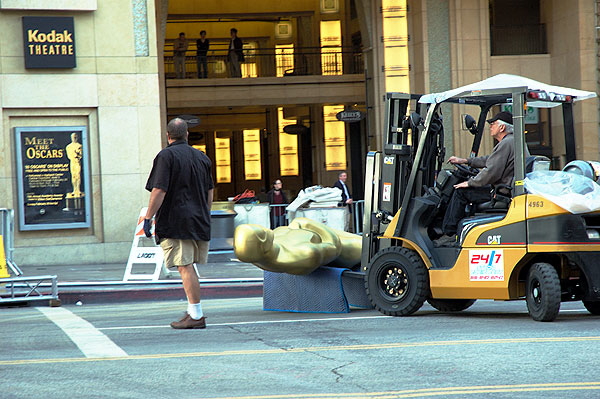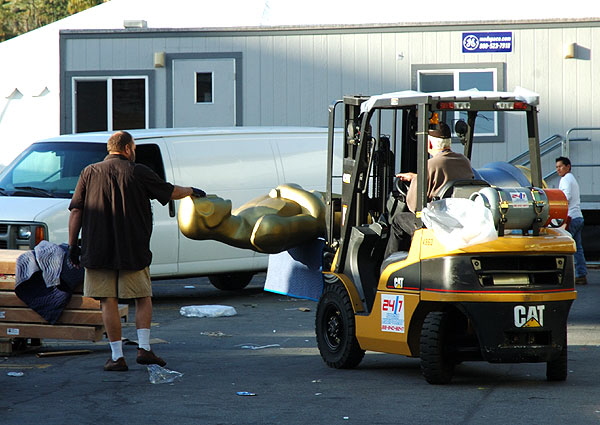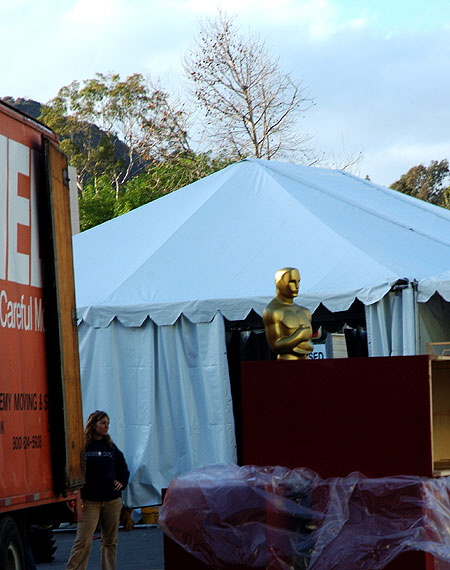|
See also -
The Movie Magic Is Gone
Hollywood, which once captured the nerve center of American life, doesn't matter much anymore.
Neal Gabler - Los Angeles Times - Sunday, February 25, 2007 [Neal Gabler is the author of many books, including "Walt Disney: The Triumph of the American Imagination" and "Life the Movie: How Entertainment Conquered Reality."]
Key excerpts (facts) -
It is hardly news that for years now the American motion picture industry has been in a slow downward spiral. Though by some accounts attendance was slightly up in 2006 over the previous year, the box-office tracking firm Exhibitors Relations reported that attendance actually declined yet again, reaching its lowest point in 10 years. And though defenders of the industry protest that foreign markets account for 40% of a film's revenue and that those proceeds are compensating for falling domestic box office, foreign receipts have been down too, and even DVD sales are plateauing. In short, the overall trends remain discouraging.
Even more worrisome than what could be just a cyclical dip is how people are regarding motion pictures and the moviegoing experience. A recent Zogby survey found that 45% of American moviegoers had decreased their attendance over the last five years, with the highest percentage of that decrease in the coveted 18- to 24-year-old bracket; at the same time, 21% of respondents said they never went to the movies. The two most-cited reasons for seeing fewer movies were rising ticket prices and the quality of the films (a perpetual culprit).
Another survey, this one conducted by PA Consulting for the Motion Picture Assn. of America, reached an even more chilling conclusion. Eighty-three percent of its respondents said they were satisfied with the content of the films they saw, but 60% nevertheless expected to spend less of their income on moviegoing in the future, citing dissatisfaction with the moviegoing experience and the emergence of better alternatives for their time and money.
And the core issue -
What is happening may be a matter of metaphysics. Virtually from their inception, the movies have been America's primary popular art, the "Democratic Art," as they were once called, managing to strike the American nerve continuously for decades. During the 1920s, nearly the entire population of the country attended the movies weekly, but even when attendance sank in the 1950s under the assault of television and the industry was virtually on life support, the movies still managed to occupy the center of American life.
Movie stars have been our brightest icons. A big movie like "The Godfather," "Titanic" or "Lord of the Rings" entered the national conversation and changed the national consciousness. Movies were the barometers of the American psyche. More than any other form, they defined us, and to this day, the rest of the world knows us as much for our films as for any other export.
Today, movies just don't seem to matter in the same way - not to the general public and not to the high culture either, where a Pauline Kael review in the New Yorker could once ignite an intellectual firestorm. There aren't any firestorms now, and there is no director who seems to have his finger on the national pulse the way that Steven Spielberg or George Lucas did in the 1970s and 1980s. People don't talk about movies the way they once did. It would seem absurd to say, as Kael once did, that she knew whether she would like someone by the films he or she liked. Once at the center, movies increasingly sit on the cultural margins.
Oh, that. There's much more at the link.
|





